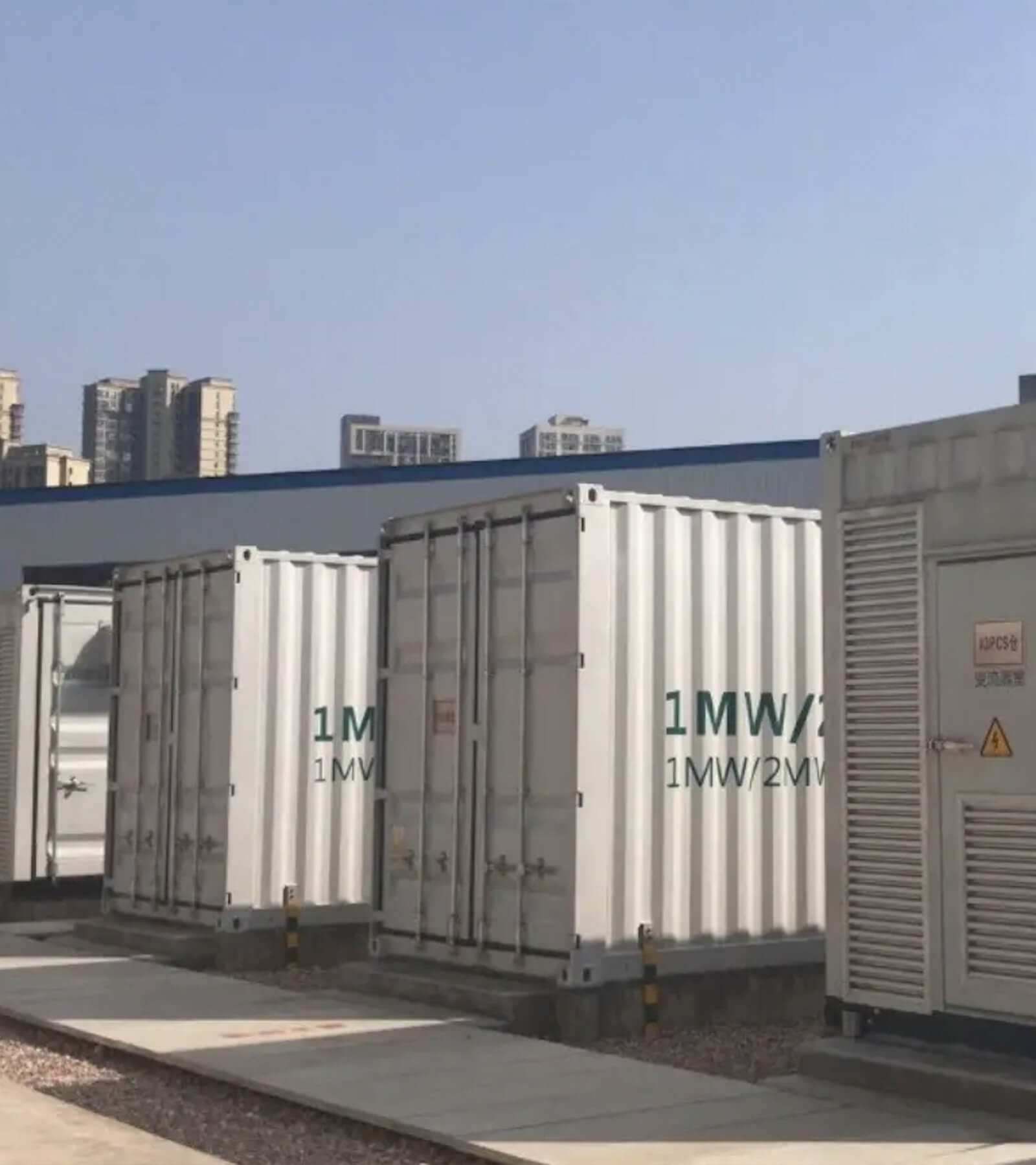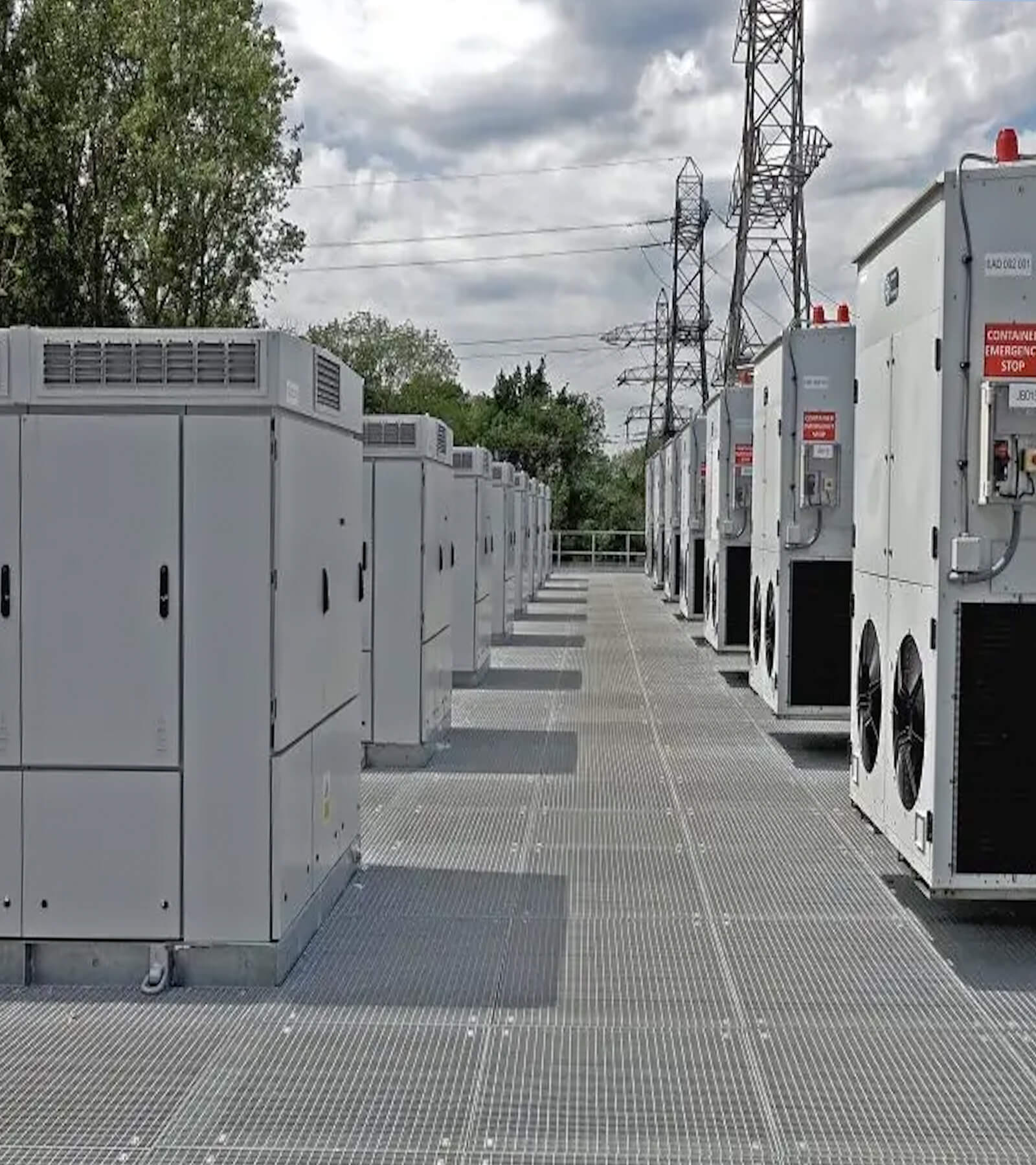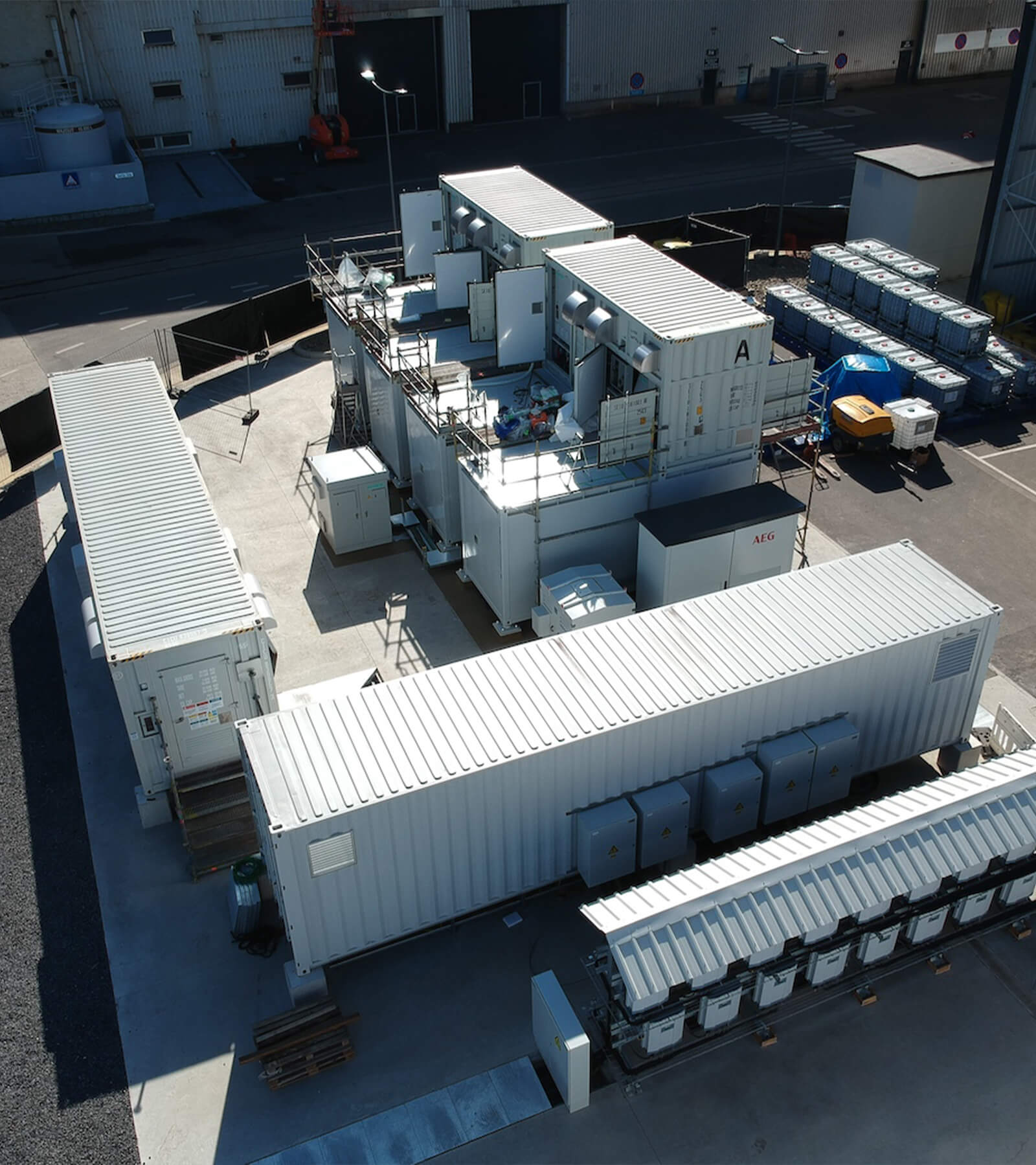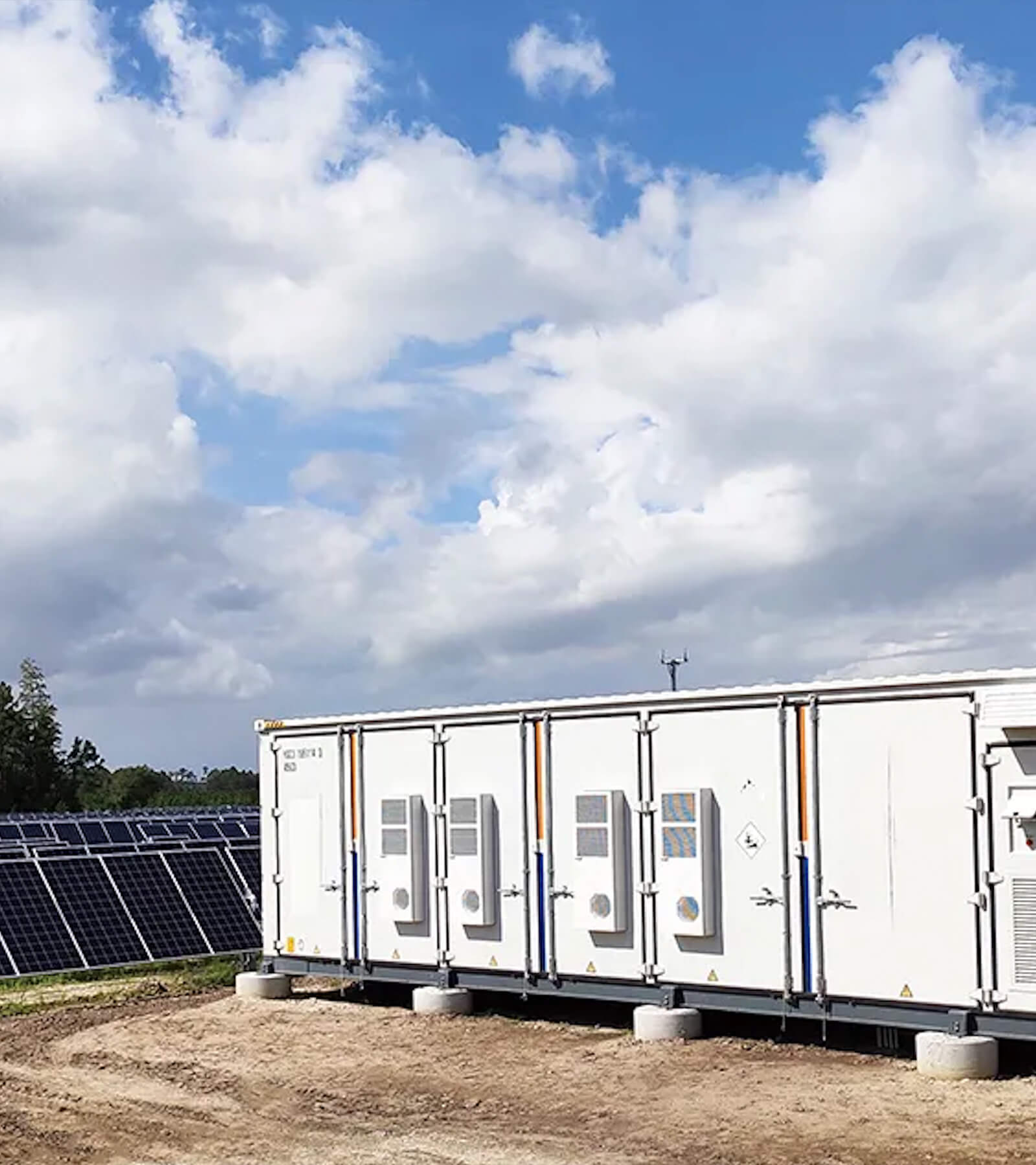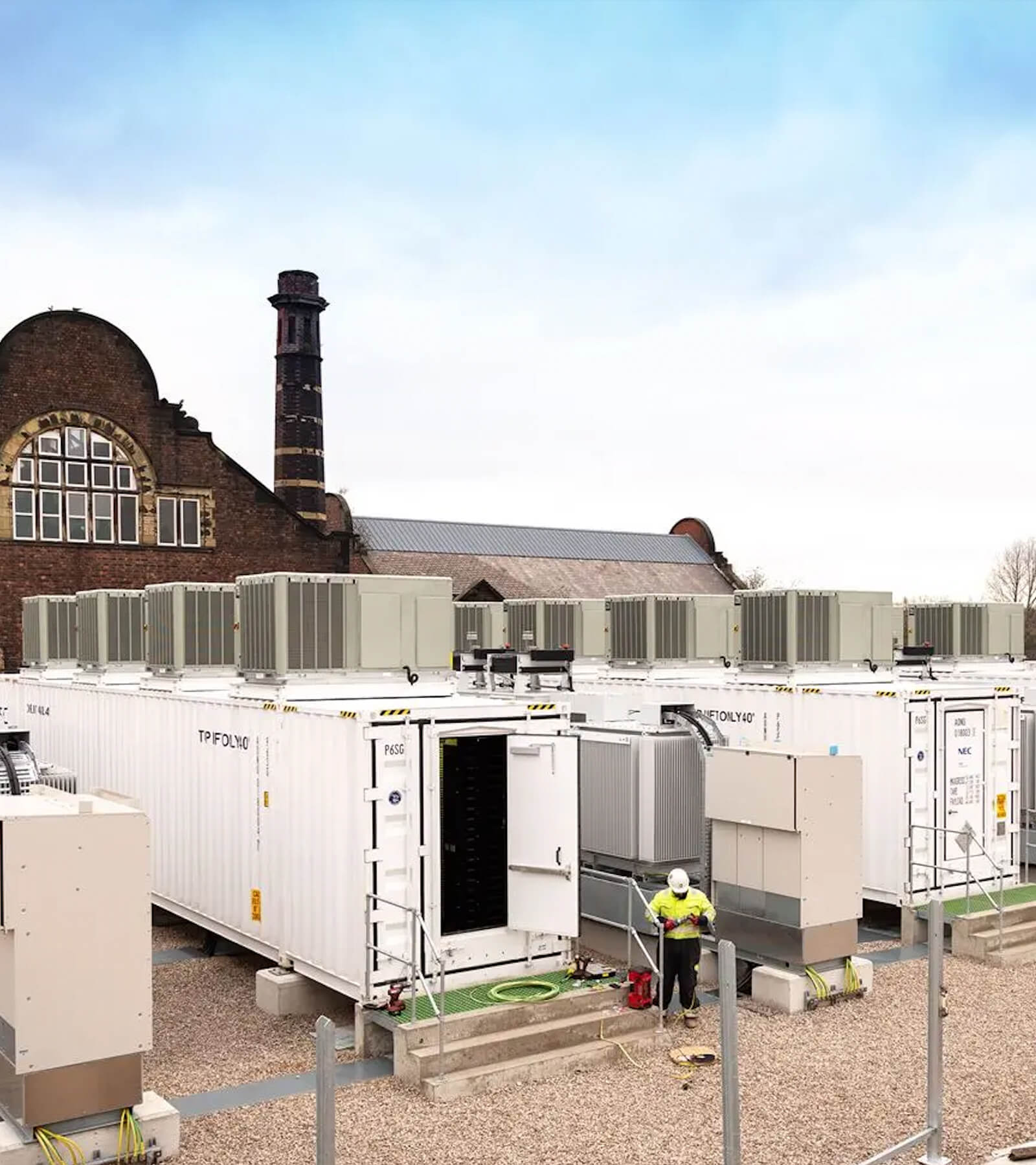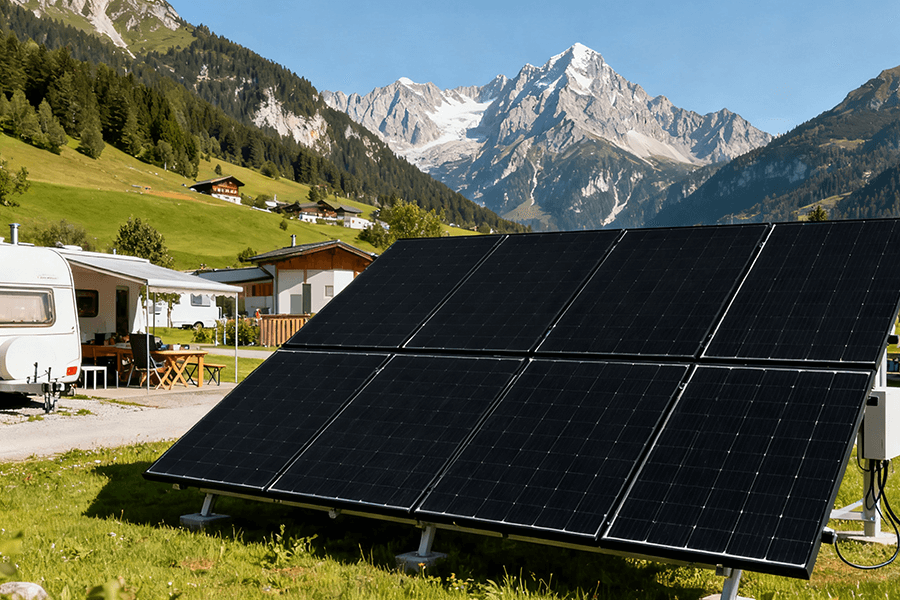
The Diesel Dilemma—Why Mountain Campsites Are Stuck in a Power Crisis
Picture This: A Frigid Welcome in the Alps
Imagine this scenario: A family sets out on an invigorating, 3-hour hike through the awe-inspiring Austrian Alps. As they traverse the rugged terrain, excitement builds for a well-deserved evening of relaxation at their campsite.
But upon arrival, they’re greeted with a series of disheartening disappointments:
- No hot water to ease their sore muscles after the long trek
- Pitch-black paths leading to their tent, eliminating any sense of safety or comfort
- Dead phone batteries, cutting them off from communication and navigation tools
What’s behind this less-than-stellar welcome? The culprit? A diesel generator that seized up mid-operation, frozen solid by the harsh -15°C mountain winter temperatures.
This isn’t a rare occurrence for the 800+ mountain campsites dotting the European landscape. Instead, it’s an all-too-familiar, recurring nightmare that not only undermines the camping experience but also jeopardizes the livelihoods of campsite owners.
The Numbers Behind the Crisis
For years, diesel generators have been the go-to power source for remote campsites across the continent. However, their numerous flaws are now exacting a significant toll on campsite owners, manifesting in lost time, financial strain, and dissatisfied guests. Let’s take a closer look at the key challenges they pose:
|
Metric
|
Statistic
|
Direct Impact
|
|
Total European mountain campsites
|
800+
|
–
|
|
Percentage relying on diesel generators
|
85%
|
Emits noise pollution equivalent to a chainsaw (110-120 dB), leading to disturbed wildlife and uncomfortable camping conditions. Prone to frequent breakdowns in cold weather, disrupting services.
|
|
Weekly revenue loss from generator failure
|
€10,000+
|
Results in canceled bookings, the need for guest compensation, and costly emergency repair expenses.
|
|
EU emission fines for non-compliance
|
Up to €5,000/day
|
Puts campsites in high-risk mountain regions at jeopardy due to strict regulations aimed at protecting endangered wildlife, such as the Pyrenees ibex.
|
|
Diesel generator CO₂ emissions (per site/year)
|
280 tons
|
Significantly violates EU climate targets and serves as a major deterrent for eco-conscious travelers seeking sustainable camping options.
|
Source: European Camping Association (ECA) 2024 Report https://www.ecacamping.org/reports/mountain-power-2024
These statistics paint a clear picture: the reliance on diesel generators is not only environmentally detrimental but also financially unsustainable for mountain campsites.
The Solution: BESS Containers—Silent, Strong, and Snow-Proof
Diesel generators might as well be the “grumpy uncles” of mountain power systems—loud, messy, and frustratingly unreliable, especially when their service is most critical. In stark contrast, Battery Energy Storage System (BESS) containers emerge as the unsung heroes of the campsite power landscape.
Here’s what makes BESS containers a game-changer:
- Lightning-Fast Response: In the event of a grid outage, BESS containers spring into action in a mere 10 milliseconds—faster than the blink of an eye. This instantaneous power activation ensures that campsite operations remain uninterrupted, providing a seamless experience for guests.
- Built for the Elements: Engineered to endure the harshest of conditions, BESS containers can withstand frigid temperatures as low as -40°C and are capable of handling up to 3 meters of snow accumulation. Their robust design makes them a reliable power solution even in the most extreme mountain environments.
- Eco-Friendly Operation: With zero emissions, BESS containers eliminate diesel fumes entirely, making them fully compliant with the EU’s stringent “Eco-Camping” standards. This not only helps protect the pristine mountain ecosystems but also appeals to the growing number of environmentally conscious campers.
As the European Camping Association aptly puts it: “BESS containers are not just a ‘nice-to-have’—they’re becoming a requirement for campsites that want to stay competitive in the eco-tourism market.” This shift towards BESS containers represents a significant step forward in ensuring the long-term viability and sustainability of mountain campsites across Europe.
BESS in Action: Keeping Campsites Running—No Matter the Weather
Mountain campsites can’t afford downtime. BESS containers ensure critical systems (water, lighting) and guest amenities stay online, even during blizzards or grid blackouts.
Water Pumps & Lighting: The Backbone of Campsite Safety
Water and Lighting: The Cornerstones of Campsite Operations and Safety
At mountain campsites, water and lighting stand as the twin pillars underpinning both operational continuity and guest safety.
- Water Supply: A reliable water source is non-negotiable. Without it, essential services cascade into failure:
-
- Drinking Water: Vital for guest hydration and health
-
- Sanitation: Necessary for maintaining hygiene standards
-
- Shower Facilities: Key to guest comfort and satisfaction
- Lighting: Inadequate illumination poses significant risks:
-
- Accidental Injuries: Increases the likelihood of slips, trips, and falls
-
- Disorientation: Impairs navigation and safety during nighttime activities
BESS Containers: Advanced Backup Power Solutions
BESS (Battery Energy Storage System) containers serve as a sophisticated “backup power buffer”, equipped with two critical features:
- Advanced Monitoring: These systems are designed to detect grid failures within milliseconds
- Seamless Transition: Upon detection, they instantaneously switch to battery power, ensuring:
-
- Uninterrupted water supply
-
- Continuous operation of lighting systems
-
- Consistent guest safety and comfort
This rapid response mechanism safeguards essential services, providing peace of mind for both campsite operators and guests.
Case Study: Berggasthaus Aescher (Swiss Alps)
Nestled at an elevation of 1,454 meters on a dramatic cliffside, Berggasthaus Aescher faces unique energy challenges. Its grid connection is so tenuous that the site manager described it as “a whisper, not a lifeline” in a 2025 interview. To address this vulnerability, the team installed a 500kWh Maxbo Solar BESS container in January 2025. This specialized unit is engineered to withstand extreme conditions, making it ideal for avalanche-prone regions.
Three weeks after installation, a severe blizzard struck, knocking out the grid for four hours. Thanks to the BESS container:
- Water Systems: Drinking water and shower services remained fully operational, maintaining hygiene standards and guest comfort.
- Lighting: LED path lighting continued to illuminate the campsite, preventing any guest injuries.
- Business Impact: The campsite avoided any booking cancellations, in stark contrast to the 12 cancellations experienced during a similar outage in 2024.
Source: Berggasthaus Aescher 2025 Operational Report https://www.berggasthaus-aescher.ch/bess-report-2025
BESS vs. Diesel: Critical System Performance
The table below compares the performance of diesel generators and BESS containers in key operational areas:
|
Feature
|
Diesel Generator
|
BESS Container
|
Key Advantage
|
|
Start-up time
|
3-5 minutes (too slow for emergencies)
|
10ms (instantaneous response)
|
Prevents water shortages and immediate blackouts
|
|
Cold-weather reliability
|
Fails 40% of the time in temperatures below -10°C
|
99.9% reliable at -40°C
|
Ensures uninterrupted service during harsh winters
|
|
Noise level
|
110-120 dB (disrupts the natural environment and guest comfort)
|
<65 dB (quieter than a typical conversation)
|
Preserves the tranquil mountain atmosphere that guests seek
|
2.2 Guest Amenities: Powering the “Glamping” Boom
The modern camping landscape has witnessed a significant shift towards “glamping”—a blend of wilderness experience and modern conveniences. A 2024 survey by the European Camping Association (ECA) revealed that 78% of travelers prioritize campsites offering charging ports and communal kitchens, and are willing to pay a premium of up to 20% for these amenities. BESS containers enable campsites to meet these evolving demands without relying on unstable grid connections.
Case Study: Tyrol Adventure Campsite (Austria)
In 2024, the Tyrol Adventure Campsite installed a 400kWh BESS container to enhance its amenity offerings. The transformation was remarkable:
|
Amenity
|
Before BESS Installation
|
After BESS Installation
|
Impact
|
|
Phone charging ports
|
5 units, often overcrowded and unreliable
|
20 units with 24/7 power availability
|
Eliminated guest complaints about device charging issues
|
|
Communal kitchens
|
None; guests relied on portable stoves
|
2 fully-equipped kitchens with fridges and coffee machines
|
Attracted 30% more bookings, primarily from families and remote workers
|
|
Power uptime
|
85%, subject to frequent outages
|
99.9% near-perfect reliability
|
Boosted guest retention rate by 15%
|
Source: Tyrol Adventure Campsite 2024 Annual Review https://www.tyrol-adventure.at/2024-review
Key Takeaway: BESS technology transcends traditional power backup solutions. By ensuring reliable electricity supply for both critical systems and guest amenities, it not only resolves power challenges but also elevates basic campsites into sought-after premium destinations.
Going Green: BESS and the EU’s Eco-Camping Initiative
Mountain ecosystems are among Europe’s most delicate natural treasures.
- Glaciers in Retreat: Picture shrinking glaciers that have endured for centuries.
- Fragile Wildlife: Unique wildlife teetering on the brink of extinction.
- Pristine Atmosphere: Pristine air that acts as a powerful magnet for tourists seeking an escape from urban life.
In 2022, the European Union launched the “Eco-Camping” initiative, a strategic move aimed at promoting sustainable tourism practices. This initiative offers three tiers of certification:
|
Certification
|
Criteria
|
Benefits
|
|
Gold
|
Highest level of emissions reduction
|
Premium marketing appeal
|
|
Silver
|
Substantial emissions reduction
|
Competitive edge in bookings
|
|
Bronze
|
Initial steps towards sustainability
|
Entry into eco-tourism market
|
These certifications aren’t just badges of honor; they’re powerful marketing tools that significantly boost bookings.
Amid this eco-conscious push, Battery Energy Storage System (BESS) containers have emerged as the most efficient pathway for campsites to meet and exceed the stringent environmental criteria set by the EU.
Ditching Diesel: From Fumes to Certifications
The Diesel Dilemma in Mountain Campsites
For years, traditional diesel generators have served as the primary energy source for numerous mountain campsites. However, this reliance comes with a substantial environmental toll.
- Emission Statistics: Each campsite that depends on diesel generators releases a staggering 280 tons of CO₂ annually. This figure is far higher than the EU’s ambitious 2030 targets set for the tourism sector.
- Consequences:
-
- Environmental Impact: The carbon footprint generated by these generators directly harms the environment, contributing to climate change and air pollution in these otherwise pristine mountain areas.
-
- Business Risks: It also poses a significant threat to a campsite’s reputation and financial performance. In an era where sustainability is highly valued by consumers, high emissions can lead to negative publicity and a loss of eco-conscious customers.
BESS Containers: A Revolutionary Solution
Enter BESS (Battery Energy Storage System) containers—a game-changing innovation that completely eliminates diesel emissions. By adopting BESS technology, mountain campsites can:
- Achieve Sustainability Goals: Make a significant stride towards environmental friendliness, reducing their carbon footprint to near zero.
- Gain Prestigious Recognition: Effortlessly secure the esteemed “Eco-Camping Gold” certification. This accolade stands as the highest honor within the EU’s eco-camping program, signifying a campsite’s commitment to sustainable practices and environmental stewardship.
Case Study: Campsite La Mongie (French Pyrenees)
In 2023, Campsite La Mongie, nestled in the picturesque French Pyrenees, decided to take a bold step towards sustainability. The campsite replaced its two diesel generators with a robust 600kWh BESS container, marking a significant shift in its energy strategy. The transformation was nothing short of remarkable:
- Diesel Consumption: A drastic reduction of 98%, plummeting from a hefty 5,000 liters per month to a mere 100 liters per month. This not only slashed operational costs but also significantly reduced the campsite’s environmental impact.
- Emission Fines: The campsite bid farewell to EU emission fines, saving a substantial €2,000 per month that was previously drained due to non-compliance.
- Certification and Bookings: The adoption of BESS technology led to earning the coveted “Eco-Camping Gold” certification. This prestigious recognition acted as a catalyst, driving a 25% surge in bookings from eco-conscious tourists eager to support sustainable travel.
Source: EU Eco-Camping Certification Database 2024 https://ec.europa.eu/environment/eco-camping/database
Solar-Wind-BESS: The Mountain Power Trinity
High-altitude regions in Europe are blessed with an abundance of renewable energy resources, making them ideal locations for sustainable power generation:
- Solar Potential: Thanks to the thinner atmosphere at higher elevations, these regions receive 20-30% more sunlight compared to lowlands. This solar richness offers a significant opportunity for harnessing clean energy.
- Wind Resources: The steady mountain breezes that sweep through these areas create perfect conditions for small wind turbines, providing a reliable source of wind energy.
However, the intermittent nature of solar and wind energy poses a challenge. When the sun sets or the winds die down, energy production stops. This is where BESS containers come into play. These innovative storage systems capture excess energy generated during peak production times and store it for use when renewable sources are inactive. In doing so, they transform the inconsistent supply of solar and wind energy into a reliable, 24/7 power source, ensuring a stable electricity supply for campsites.
Case Study: FjordView Campsite (Norway)
In 2023, FjordView Campsite, located along the stunning Norwegian fjords, implemented an integrated energy solution. The campsite paired a 300kW solar-wind system with a 600kWh BESS container, creating a self-sustaining energy ecosystem. The results have been impressive:
- Renewable Energy Share: 70% of the campsite’s power now comes from renewable sources, a significant leap from the mere 15% reliance on diesel before the upgrade.
- Guest Appeal: The campsite’s commitment to sustainability has attracted eco-conscious guests willing to pay a €20/night premium to stay at a “100% carbon-neutral” site, showcasing the market demand for green tourism.
- Financial Viability: The investment in the solar-wind-BESS system has a payback period of just 3.8 years, far more attractive than the 7+ years typically required for diesel generators.
Renewable Integration ROI Breakdown
|
Cost/Metric
|
Value
|
Notes
|
|
Total system cost (solar + wind + BESS)
|
€220,000
|
Includes installation and a comprehensive 5-year maintenance plan
|
|
Annual savings (diesel + fines)
|
€58,000
|
Diesel savings: €45,000/year; Fine savings: €13,000/year
|
|
Payback period
|
3.8 years
|
Calculated as total cost ÷ annual savings
|
|
Annual CO₂ reduction
|
210 tons
|
Equivalent to planting 5,250 trees/year, highlighting the environmental impact
|
Source: Norwegian Camping Federation 2024 Sustainability Report https://www.ncf.no/sustainability-2024
Why Maxbo Solar Is Your Mountain Power Partner (From Someone Who Lives It)
As the Head of Alpine Solutions at Maxbo Solar, I’ve dedicated seven impactful years to the intricate art and science of designing Battery Energy Storage System (BESS) solutions. These solutions are meticulously tailored to meet the unique demands of mountain campsites.
This journey has been nothing short of extraordinary, taking me through some of the harshest conditions nature can offer. I’ve stood resolute in the midst of blizzards, rigorously testing our BESS containers to ensure their unwavering reliability. It’s been an incredibly fulfilling experience to assist campsite owners in achieving their sustainability goals. One memorable highlight was celebrating with them as they received their first “Eco-Camping Gold” certification.
Perhaps the most rewarding aspect of all is hearing guests’ enthusiastic reactions. When they exclaim, “This is the first campsite where my phone never dies,” it underscores the tangible impact of our work.
At Maxbo Solar, we’re not just in the business of selling BESS containers. We’re committed to crafting power systems that are:
- Robust: As sturdy as the mountains themselves, able to withstand extreme weather and challenging environments.
- Intelligent: Equipped with advanced technology for optimal energy management.
- Cost-Effective: Designed to optimize your bottom line while simultaneously reducing your environmental footprint.
What Sets Maxbo’s Alpine BESS Containers Apart?
Our BESS systems are meticulously engineered to meet the exacting standards of mountainous terrains. We firmly believe that a one-size-fits-all approach simply won’t cut it in these challenging environments. Here’s what makes our solutions truly exceptional:
- Extreme Durability: Built to endure the harshest alpine conditions, our BESS containers have undergone rigorous testing. They are designed to withstand frigid temperatures as low as -40°C, endure the weight of up to 3 meters of snow, and remain operational even in the face of 100km/h winds. In fact, we’ve pushed the boundaries by subjecting them to simulated avalanche tests, ensuring their resilience in the most extreme scenarios.
- Swift Deployment: Recognizing the limited camping season in mountainous regions, we’ve optimized our installation process for maximum efficiency. Unlike traditional power systems, which can take up to six months to install, our Alpine BESS containers can be up and running in just four weeks. This rapid deployment allows campsite owners to quickly capitalize on the peak season and start enjoying the benefits of reliable, sustainable energy.
- Seamless Integration: Our BESS solutions are designed to integrate effortlessly with any renewable energy setup, whether it’s solar, wind, or a hybrid combination. To further enhance performance in snowy conditions, we offer specialized snow-shedding solar panels. These innovative panels are engineered to shed snow automatically, ensuring continuous power generation throughout the winter months and eliminating the need for manual snow removal.
Client Testimonials
Don’t just take our word for it—here’s what our satisfied clients have to say about their experience with Maxbo Solar’s Alpine BESS solutions:
“Before partnering with Maxbo Solar, our campsite faced frequent generator failures, with an average of 3-4 breakdowns each winter. Since implementing their BESS system, we’ve experienced zero outages, providing our guests with uninterrupted power and a reliable camping experience. What’s more, our commitment to sustainability has resonated with our guests, leading to a 30% increase in bookings. Investing in Maxbo Solar’s solution was hands down the best decision we’ve ever made for our business.”
— Karl Müller, Owner, Tyrol Adventure Campsite
“The team at Maxbo Solar went above and beyond to understand our unique power requirements. They visited our campsite located by the fjord, analyzed the local wind patterns, and designed a customized BESS system that seamlessly integrates with our existing renewable energy infrastructure. Thanks to their expertise, we’ve achieved a 70% renewable energy ratio, significantly reducing our carbon footprint. Our guests are constantly impressed by our sustainable energy solution, and it’s become a major selling point for our campsite.”
— Ingrid Olsen, Manager, FjordView Campsite
Customize Your Power Solution with Maxbo Solar
We understand that every mountain campsite is unique, with its own set of challenges and opportunities. That’s why we offer personalized power solutions tailored to your specific needs and budget. Here’s how you can get started:
- Explore Our Product Line: Visit www.maxbo-solar.com to browse our comprehensive range of Alpine BESS containers and related products. Discover the features and specifications that make our solutions the ideal choice for your campsite.
- Read In-Depth Case Studies: Dive into detailed case studies showcasing the successful implementation of our BESS systems at renowned mountain campsites, including Berggasthaus Aescher and La Mongie. Learn how our solutions have transformed these campsites’ energy reliability and sustainability.
- Schedule a Free Consultation: Take the first step towards a more sustainable and reliable power solution by scheduling a free 30-minute consultation with our experienced Alpine team. During this consultation, we’ll work with you to assess your energy needs, calculate potential savings, and design a customized BESS system that meets your specific requirements.
Let Maxbo Solar help you prepare for the upcoming 2026 camping season with a state-of-the-art BESS solution that combines cutting-edge technology, exceptional durability, and unparalleled performance. Contact us today and experience the difference for yourself.
Conclusion: The BESS Revolution—Coming to a Mountain Campsite Near You
BESS containers aren’t just a trend—they’re the future of European mountain camping. Here’s why:
Reliability: Powering Through Any Season
- Eliminating Downtime: In mountainous regions, extreme weather and grid instability often lead to power outages. A study by the European Outdoor Hospitality Association found that campsites lose an average of €1,200 per day during outages, affecting services like lighting, refrigeration, and Wi-Fi. BESS (Battery Energy Storage System) containers store excess energy during peak production hours and deploy it seamlessly during disruptions, ensuring uninterrupted guest experiences.
- Grid Independence: By decoupling from the main power grid, campsites can operate autonomously, reducing vulnerability to external power failures. This is especially crucial for remote locations where grid connections are unreliable or non-existent.
Sustainability: Aligning with Green Initiatives
- Meeting EU Standards: The EU’s “Eco-Camping” certification requires sites to minimize their carbon footprint. BESS containers integrate with renewable sources like solar and wind, helping campsites reduce diesel consumption by up to 90%. This not only meets regulatory requirements but also positions businesses as leaders in sustainable tourism.
- Attracting Eco-Conscious Guests: A recent survey by Booking.com revealed that 83% of travelers consider sustainability when choosing accommodation. Campsites equipped with BESS systems can market themselves as eco-friendly destinations, attracting a growing segment of environmentally conscious tourists.
Affordability: A Smart Long-Term Investment
|
Metric
|
Diesel Generators
|
BESS Containers
|
|
Initial Investment
|
€20,000 – €50,000
|
€30,000 – €70,000
|
|
Annual Maintenance
|
€2,500 – €5,000
|
€500 – €1,500
|
|
Payback Period
|
8 – 12 years
|
5 – 7 years
|
- Lower Operational Costs: While the upfront cost of BESS containers may be higher, their long-term savings are significant. With reduced fuel and maintenance expenses, campsites can achieve a faster return on investment compared to diesel generators.
- Incentive Programs: Many European countries offer subsidies and tax breaks for renewable energy installations, further reducing the financial burden for campsite owners.
Industry experts predict that by 2032, 70% of European mountain campsites will replace diesel generators with BESS. For owners, the choice is clear: Embrace BESS, or watch your guests (and profits) head to competitors who have.
The mountains deserve clean, reliable power. Your guests deserve it too. Let’s make it happen.

